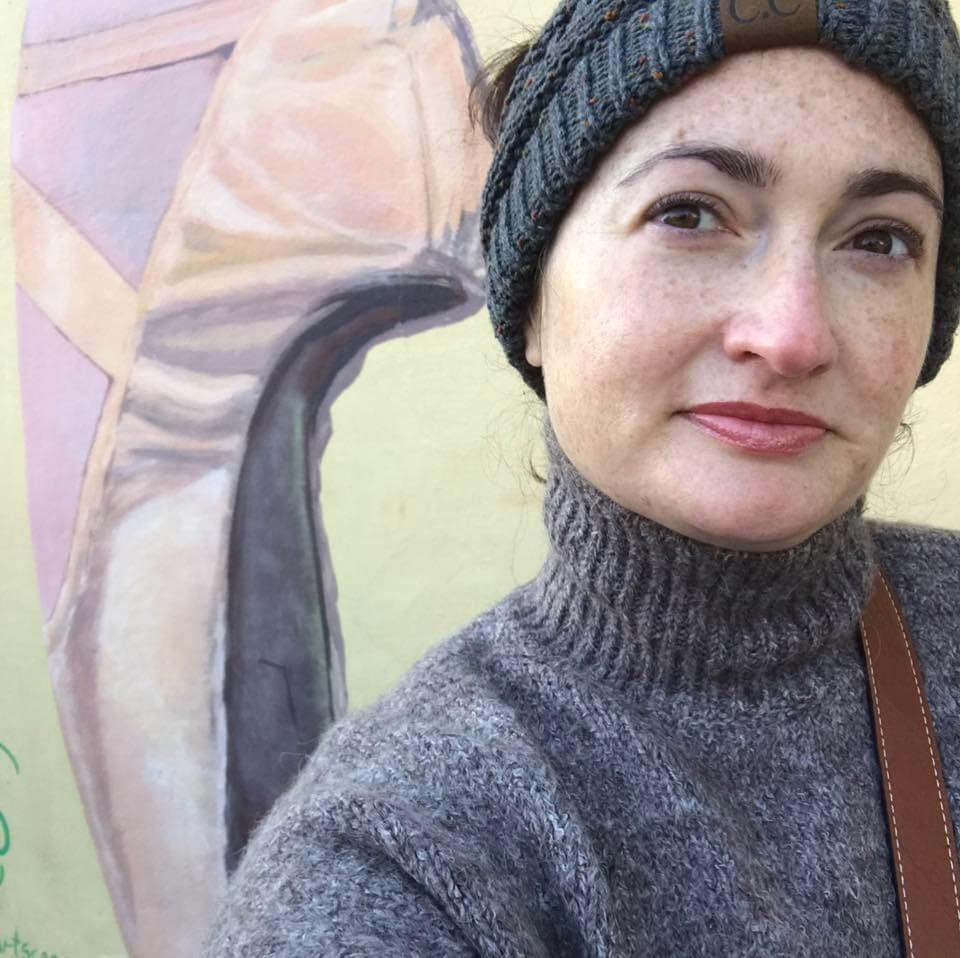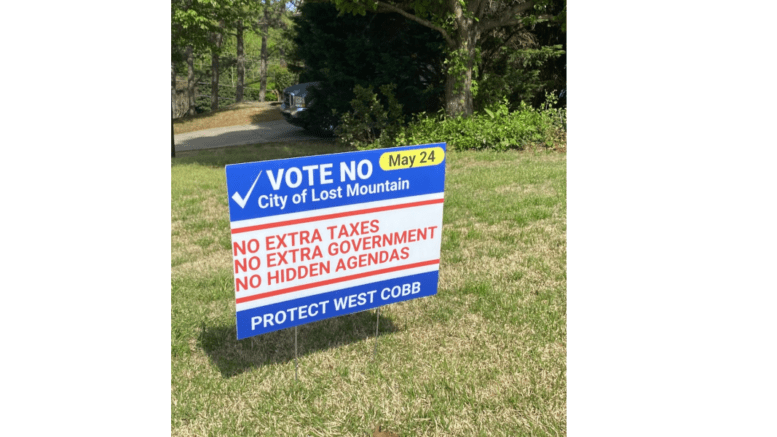By Rebecca Gaunt
Questioning the constitutionality of its city charter, West Cobb Advocate filed a lawsuit Wednesday to remove the May 24 referendum for Lost Mountain cityhood from the ballot.
West Cobb Advocate describes itself as a non-partisan group of residents who advocate for West Cobb on zoning and other community matters. Established in 2014, opposing cityhood is the current focus of the group.
In a news release, Chair Dora Locklear, who is also a plaintiff, said, “After weeks of research and review of the details of the charter and the Carl Vinson Institute cityhood feasibility study that was commissioned by cityhood proponents, we discovered language that raises more questions than answers. What we found is what was deemed feasible may, in fact, be unconstitutional.”
Attorney Allen Lightcap filed the lawsuit in Cobb County Superior Court. It names Cobb County, Janine Eveler, director of Cobb elections, and the members of the elections board as defendants. He already filed a similar suit against the proposed city of Vinings.
Gov. Brian Kemp signed House Bill 826 Feb. 22, putting cityhood in the hands of voters. Submitted in 2021, Republican state representatives Ginny Ehrhart, Bert Reeves, Ed Setzler, Matt Dollar and Devan Seabaugh signed on as sponsors. Reeves and Dollar have since resigned from the legislature to accept jobs. State Sen. Lindsey Tippins (R-West Cobb) sponsored it in the Senate.
According to the lawsuit, HB 826 is unconstitutional because it regulates how the City of Lost Mountain would use its powers through a local law. The suit argues that this can only occur through general law, or when it is applied to all cities by the General Assembly.
In an earlier interview with the Courier, Locklear said, “If we have 75,000 people who are going to be permanently affected by incorporation of a city, then I want to make sure that more than four or five thousand people have the opportunity to hear about it, to get their questions asked then answered, and to be able to show up to the polls.”
She also questioned why proponents didn’t meet with HOAs, community groups or hold public events prior to creating the legislation.
“There’s no way we aren’t going to have an increase in the amount of money coming out of our pockets. It could be from city taxes that are levied, from bonds, it could be from higher franchise fees that are passed on to us in our utility bills, it could be an increase in county taxes when they have to bridge the gap of the up to $40 million in anticipated revenue loss,” Locklear told the Courier.
Proponents of cityhood say incorporation as “city-lite,” a municipality with fewer services than a larger city, will provide local control via a mayor and six city council members to stop high-density housing and preserve green space. They also insist there will be no tax increases. The city would provide zoning, code enforcement, parks and trash service, while still relying on Cobb County for emergency services and schools.
The City of Lost Mountain website also cites concerns about Cobb crime rates, crowded schools and not wanting “West Cobb to turn into South Cobb.”
In turn, opponents have accused advocates for cityhood of having ties to developers, lobbyists and the construction industry.
Katey Harms and Rebecca Harriss have also organized against cityhood. Their non-partisan non-profit Protect West Cobb Coalition was created in 2022. A third group, City of Lost Mountain: Pros and Cons was started by Steven Lang on Facebook.
With Lang’s social media reach – the Facebook group has more than 1,700 members– and Locklear’s public speaking at informational events, Harms said her organization’s focus is on signs, fliers and postcards. Volunteers also go door to door.
“I completely support that attempt to squash this,” Harms said of the lawsuit, but they aren’t backing down in the meantime.
“In case nothing happens with the lawsuit in time for the May 24 election, we are still spreading the word on reasons to vote no and why this is not a good fit for our community so we can defeat it at the polls,” she continued.
The group has one electronic billboard at the intersection of Barrett Parkway and Dallas Highway which launched Tuesday morning with four official ads alternating.
So far there are 350 yard signs out in the community and 10 larger road signs, with plans to disperse 10 more this week.
From the West Cobb Advocate press release:
The group also points [to] flawed reasoning by proponents who claim that District 1 Commissioner Keli Gambrill is being “outvoted” by members of the Board of Commissioners on matters related to zonings in West Cobb. “That’s when I initially got involved in this whole thing, because I questioned whether what was being presented was actually true,” said Locklear. When Gambrill’s record was revealed, this claim was proven false. In fact, Gambrill has not been outvoted at any time on a zoning decision in her district.
The group also points to unanswered questions in the Carl Vinson Institute feasibility study. The study fails to mention roadway costs, which could be higher than $1 million annually in the proposed city limits. By law, roadways within city limits would be owned by the new city, if approved, and while SPLOST allocations would still come to the roads that have already been approved for projects, roadway maintenance remains an open question.
Locklear points to research she has done on over two dozen other cityhood proposals and budgets. In the case of Peachtree Corners, their initial feasibility studies had a budget for cityhood at $760,000. Actual numbers for their cityhood in their first-year budget were $2.7 million. The current fiscal year budget in Peachtree Corners is more than $20 million.
The Charter also allows for an abstention vote to be counted as a “yes,” a clause that runs counter to Robert’s Rules of Order and a situation that can potentially create ethics questions as it relates to council votes and conflicts of interest.
As for the lawsuit, Locklear says that the community should have the ability to vote for something that is based on the constitution. “There have been many questions about constitutionality of the city-lite model of cityhood, “she said. “Until this year, no one has challenged this in a court of law. We feel the community, when asked such an important question about whether or not they want to incorporate as a city, has a right to vote something that has no lingering questions about its legality. The public deserves that much.”
The Courier reached out to Rep. Ehrhart for comment but had not yet received a response at time of publication.

Rebecca Gaunt earned a degree in journalism from the University of Georgia and a master’s degree in education from Oglethorpe University. After teaching elementary school for several years, she returned to writing. She lives in Marietta with her husband, son, two cats, and a dog. In her spare time, she loves to read, binge Netflix and travel.

